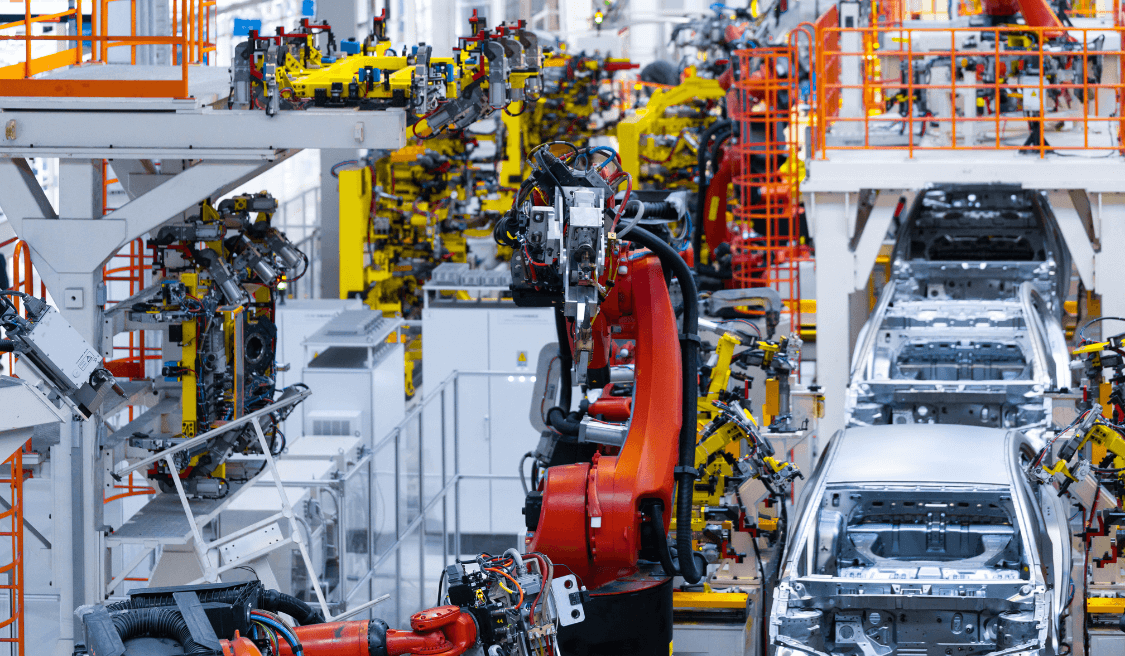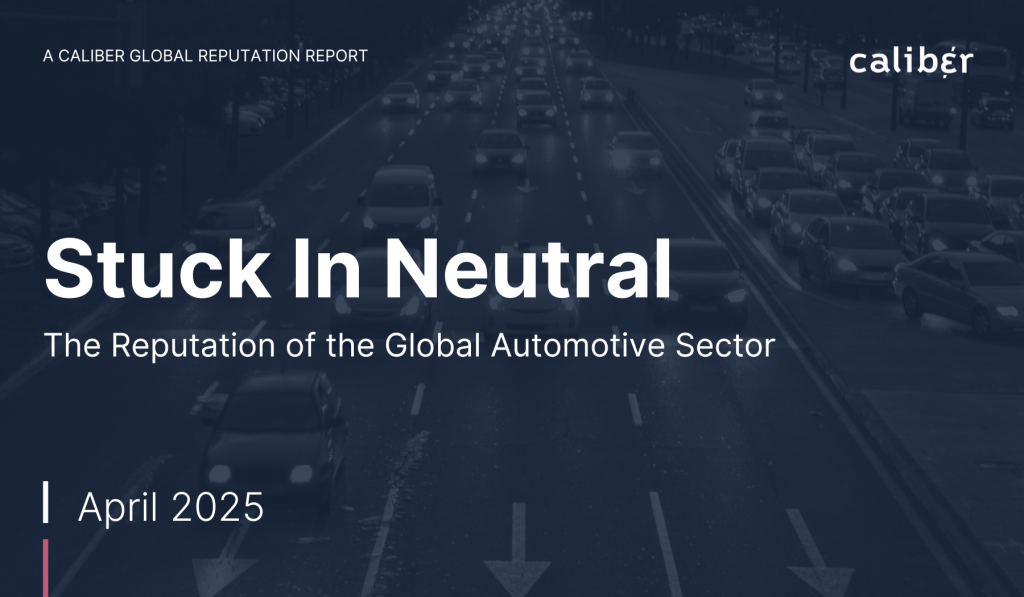
Caliber, a stakeholder intelligence company helping brands build trust, today announces the launch of its latest industry report, Stuck In Neutral: The Reputation of the Global Automotive Sector.
This comprehensive study offers an in-depth analysis of how stakeholder perceptions of the automotive industry are evolving across key markets, revealing critical trends, challenges, and opportunities for automakers worldwide.
Drawing on three years of proprietary research and real-time data from Caliber’s stakeholder tracking platform, the report provides a unique snapshot of the sector at a pivotal moment.
It explores the forces shaping the industry’s reputation, including technological innovation, shifting consumer preferences, regulatory changes, and mounting economic pressures such as the ongoing global trade war.
Download the Automotive Industry Reputation Report

The report also addresses the impact of political issues, such as trade tariffs and high-profile controversies, on stakeholder perceptions, and offers actionable recommendations for automakers to regain consumer confidence.
These include prioritizing safety and quality, addressing practical barriers to EV adoption, and focusing on long-term cost savings rather than solely environmental benefits.
“Today's automotive sector is at a crossroads — facing both strengthening brand loyalty and intensifying competition, but also declining trust and waning enthusiasm for EVs,” said Caliber CEO Shahar Silbershatz. “Our report provides industry leaders with the insights needed to navigate these contradictions and drive positive change.”
Shahar Silbershatz, CEO & Co-Founder of Caliber Tweet
Caliber is a stakeholder intelligence company that provides businesses with actionable intelligence that helps them understand their audience, communicate more effectively, and build trust. Caliber created the world’s only real-time, customizable platform that tracks stakeholder perceptions. This empowers brands to harness the full potential of their reputation and fully embody and communicate their values. To learn more, visit our website.
The Trust & Like Score is a metric developed by Caliber that measures a company’s reputation and brand strength. Companies can use this information to better understand their stakeholders and improve communications and stakeholder relations.
Caliber uses the Trust & Like Score as its chief metric because research shows that stakeholder behavior is closely linked to the degree to which people trust and like a company.
The Score is calculated by averaging responses to two sentences: “[Company] is a company I like” and “[Company] is a company I trust.” The results are then compared to a normative scale to determine if the score is positive or negative.

James is a communications strategist and senior content lead at Caliber, where he writes about corporate reputation, stakeholder intelligence, and brand trust. He draws on more than a decade of experience helping organizations turn data into stories that build credibility and connection.
The report shows that the automotive sector faces a mix of declining trust, strengthening brand loyalty, and growing competitive pressure from Chinese manufacturers. The industry’s global Trust & Like Score dropped to 66/100, marking the lowest reputation among consumer-facing sectors. Practical concerns—such as safety, quality, and vehicle affordability—now outweigh environmental considerations.
Consumer interest in EVs has cooled, with “likely” purchase intentions falling from 40% to 36% since 2023 and “unlikely” responses rising from 15% to 21%. Key barriers include battery life concerns, charging infrastructure gaps, high purchase costs, and limited driving range—each cited by at least 40% of respondents.
Safety and quality concerns have risen sharply:
Producing safer cars: +6 percentage points since 2023
Improving quality to avoid recalls/breakdowns: +6 percentage points
These two issues now sit among the top three global consumer priorities—showing that operational excellence is becoming more urgent than innovation messaging.
Chinese brands are rapidly gaining ground. In China, 71% of likely EV buyers say they’ll purchase from a Chinese manufacturer (up from 62%), and even in the US, Chinese EVs outperform American models on attributes like price, battery quality, technology, and warranty. This shift presents a significant competitive challenge for Western automakers.
Geopolitical factors—including human rights concerns in China, Elon Musk’s political involvement, and Trump administration tariffs—are shaping consumer perceptions. For example, 41% of UK respondents say Musk’s political activities make them like Tesla less, and 39% of Americans believe upcoming tariffs will raise vehicle prices and slow EV innovation. These political dynamics create added reputation and market risks for automakers.
Follow Caliber
Get the results of our latest research directly in your inbox!